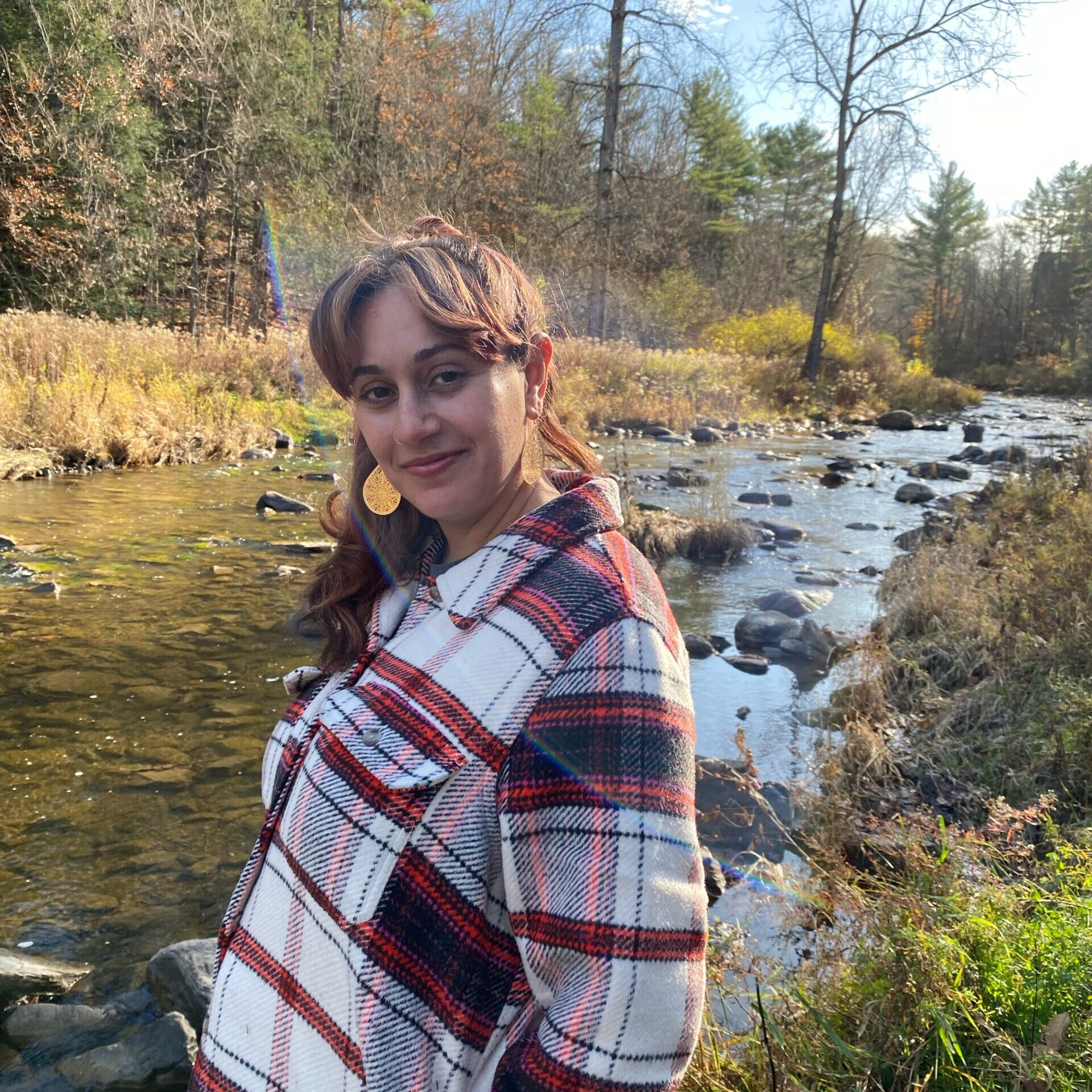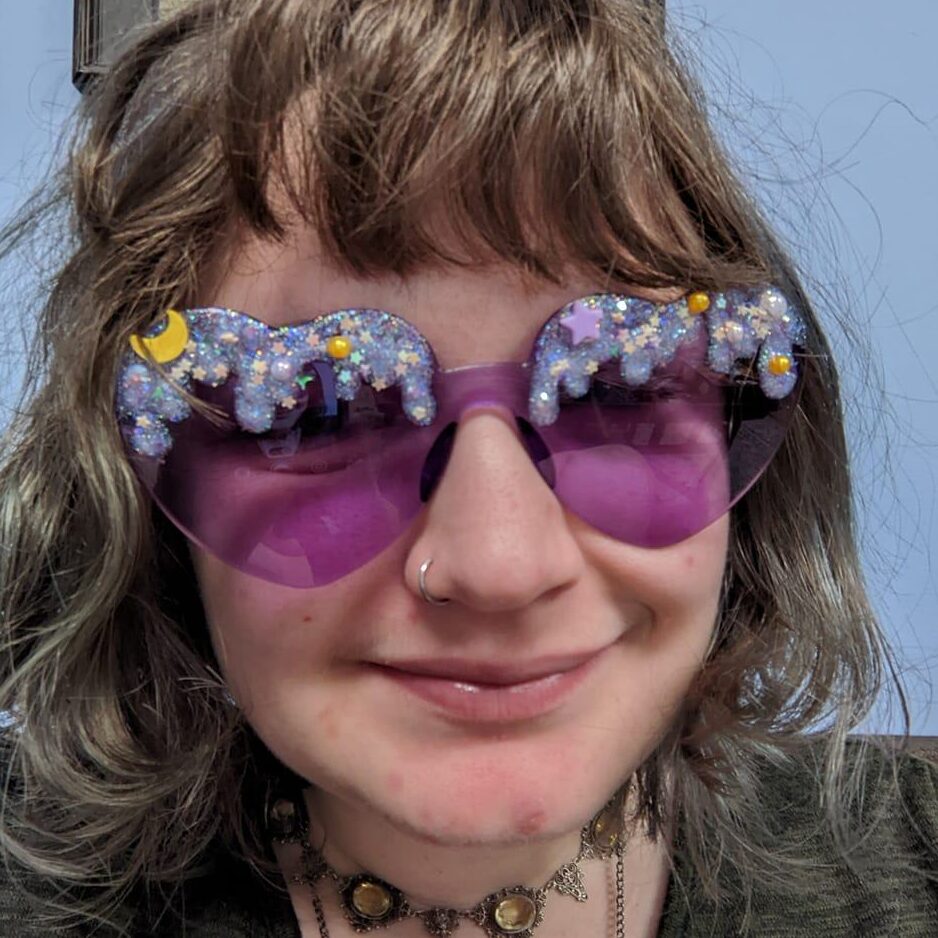Iraq’s invasion of Kuwait pushes six-year-old Nada’s mother to immigrate with her to the United States without Nada’s father, without a grasp of the English language, and without any sort of familiarity. When Nada realizes they’re in Rhode Island to stay, it sets off a chain of revelations that changes her perspective on her family and her world.
In All Water Has Perfect Memory, debut author Nada Samih-Rotondo takes readers around the world – from Palestine to Kuwait to the shores of Rhode Island. Her memoir explores themes of intergenerational trauma, the impact of war, and the familial ties we can never escape.
We spoke with Samih-Rotondo about writing memoir, her favorite books, and the best ways to support the Palestinian community in 2024. This interview has been edited and condensed for clarity.
While your book is a memoir, it is also about history, place, and family. The things that make you, well, you. How much research went into the creation of All Water Has Perfect Memory? In your research, did you learn anything that surprised you?
I structured the narrative of All Water Has Perfect Memory knowing how I wanted to reveal the big surprise of reuniting with my paternal side after a thirty year separation and there was a significant amount of research that went into the book. The purpose of my research was to gather material to support information I already knew and wanted to enhance for readers, but there were definitely surprises along the way. For example, learning that our moon is slowly moving away from us. While the moon is only moving away at a rate of about 3.8 centimeters per year, I was surprised I hadn’t heard that before and it became important to include that information.
I saw in an interview you did with Cambridge Common Writers that you have written fiction, but lately your focus has been on nonfiction. Could you share with us why nonfiction has drawn you in?
I was always drawn to nonfiction and kept a journal most of my life, but because I wasn’t aware of any nonfiction that reflected my experiences as a Palestinian American, it didn’t seem like something I could do. I had internalized the false colonial notion that personal stories like mine didn’t matter or were not literary material. I can attest that the advice of “surround yourself with the right people” is true, because it wasn’t until I experienced the upheaval of divorce and dissolution of toxic friendships that I was able to take the first steps towards valuing my experiences and building the right community that could hold me through the ups and downs of memoir writing.
What advice would you give to other writers in writing nonfiction, particularly memoirs?
My advice to other memoir writers is to cast your net of support far and wide. For me, that meant traditional talk therapy along with time out in nature. Healing modalities that helped move difficult emotions through my body like physical therapy, acupuncture, or working out were important as it became clear that I was transmuting generational trauma through my writing process. In terms of writing advice, reading various types of nonfiction, poetry, and memoir is a great way to expand horizons for what you can imagine is possible for your work.
What got you into writing in the first place and what are your favorite books to read?
I have been writing and creating stories since I was old enough to hold a pencil! I come from a culture rich in oral and written storytelling traditions and grew up being surrounded by stories. While I like reading everything, my absolute favorite genres are sci-fi or weird fiction, fairytale remixes and historical fiction. If it’s historical fiction with sci-fi elements, even better. Some of my favorite books are Lovecraft Country by Matt Ruff, Beloved by Toni Morrison, Fire Keeper’s Daughter by Angeline Boulley, Kindred by Octavia Butler, Soman Chainani’s Beasts and Beauty and Susan Abulhawa’s The Blue Between Sky and Water.
Reading books about Palestine and the Palestinians experience is more important now than ever. Besides your own work, are there books and/or actions you would suggest for those that want to learn more and support Palestinians?
Books:
- Salt Houses by Hala Alyan
- The Sea Clock and Other Stories by Nayrouz Qarmout
- Behind you in the Sea by Susan Muaddi Darraj
- Hundred Years’ War on Palestine by Rashid Khalidi
- They Called me a Lioness by Ahed Tamimi and Dena Takruri
- Born Palestinian Born Black by Suheir Hammad
Actions:
- Educate yourself, your inner circle, then your wider community
- Follow Palestinian social media accounts, creative civil disobedience
- Contact representatives to demand a ceasefire and end of funding Israel
- Boycott and divestment
- Expand your capacity to learn, listen and hold grief
Is there anything else you would like to share?
Something that took me a long time to understand is that I don’t need to be part of all the movements all of the time. Our struggles are connected, so when we start to unravel our own little piece of the thread, we are inevitability helping to untangle the entire mess. We each have an inner creative genius that is a vital piece of the puzzle of co-creating a new world together and that is enough. You are enough.


